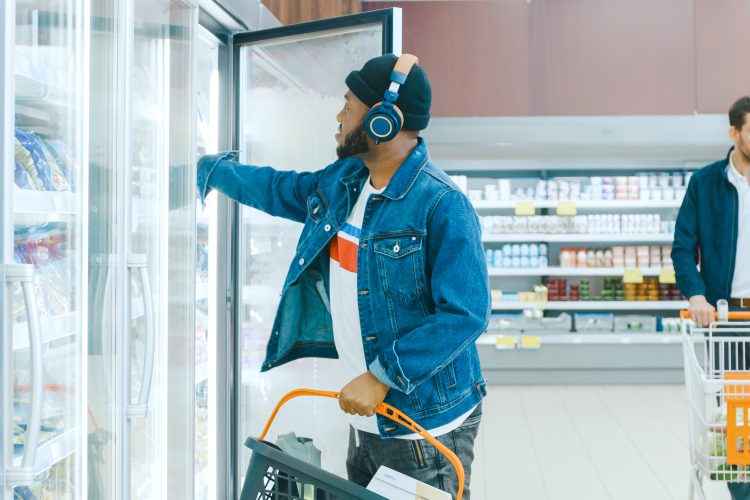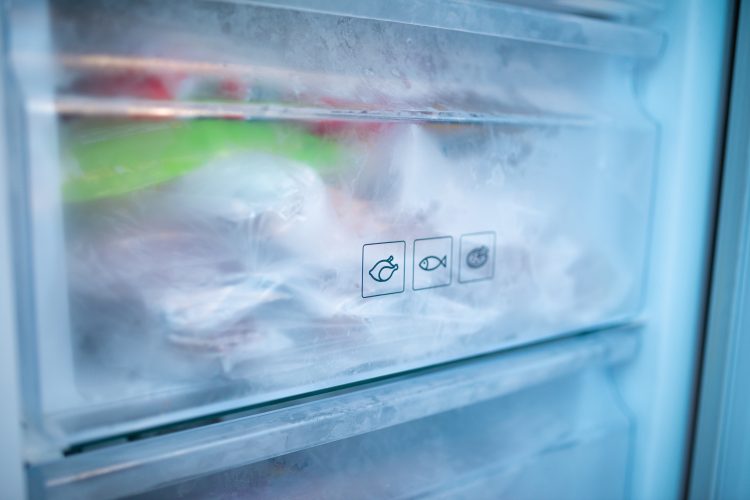Turning up the dial on frozen
- Like
- Digg
- Del
- Tumblr
- VKontakte
- Buffer
- Love This
- Odnoklassniki
- Meneame
- Blogger
- Amazon
- Yahoo Mail
- Gmail
- AOL
- Newsvine
- HackerNews
- Evernote
- MySpace
- Mail.ru
- Viadeo
- Line
- Comments
- Yummly
- SMS
- Viber
- Telegram
- Subscribe
- Skype
- Facebook Messenger
- Kakao
- LiveJournal
- Yammer
- Edgar
- Fintel
- Mix
- Instapaper
- Copy Link
Posted: 5 January 2024 | Sam Fulton | No comments yet
Sam Fulton delves into why Nomad Foods believes the benefits of frozen food need to be better understood in the fight against climate change.


By Sam Fulton, Group Director of Corporate Affairs and Sustainability at Nomad Foods
According to the United Nations’ Food and Agriculture Organisation (FAO), the food system contributes a third of global greenhouse gas emissions. We know that failure to mitigate the worst impacts of climate change not only threatens lives and livelihoods across the world but could materially impact many businesses. Therefore, every food business must play its part in reducing greenhouse gas emissions across the value chain.
Frozen food may not be front of mind for most people when they think about how to reduce their carbon footprint and so as Europe’s leader in frozen food we are on a mission to make sure the benefits of frozen are better understood – at the same time as we continue to put nutritious, tasty, affordable and responsibly produced food on consumer tables and find ways to manage our business and our supply chain more efficiently.
Frozen in time
In 2024, we will celebrate the centenary of one the most crucial inventions that’s shaped food manufacturing for generations: the flash-freezing process. Clarence Birdseye revolutionised the method of freezing fresh fish in 1924 and to this day, the same method of preserving the freshness of fish, meat and vegetables without compromising on its quality, nutritional value and taste has been used by the global food manufacturing industry.
Warmer freezers could cut energy consumption, finds Nomad Foods
There is another area in frozen food, which has also remained unaltered for generations: the assumed temperature at which we store our frozen food products – from wholesaler to retailer – and at home too! Why has this not changed we wondered – and could making even a small change to the temperature that we store frozen food be a way to make a huge reduction in energy use!
Building on Clarence’s legacy of innovation
Given our position as Europe’s leading frozen food company and the proud owner of the Birds Eye brand in key markets including the UK, Nomad Foods decided to launch a breakthrough project aimed at exploring whether temperatures above –18C / 0F (the industry standard) can be targeted to store frozen food, without any negative implications on the quality or safety of products.
Working with leading global external research partner, Campden BRI, we commissioned a pilot study, focusing on nine savoury products from across the Nomad Foods portfolio including poultry, natural fish, coated fish, vegetables, plant-based products from the ‘Green Cuisine’ range and pizza. The eight areas for analysis were microbiological, texture, oxidative rancidity, drip loss, nutrition, energy use and packaging. The temperatures used for testing were -18, -15, -12 and -9 centigrade.
In terms of scale, we believe this to be a ‘first of its kind’ study, given the data for this kind of research doesn’t currently exist anywhere else.
Our study also follows the industry leading research we previously announced in 2022, focused on the life cycle analysis of frozen food, which showed that category performs very well against alternative preservation methods in terms of carbon footprint, partly due to much lower levels of food waste.
What the results tell us
The initial six-month pilot study in 2023 showed encouraging results against all the test criteria. All products remained micro-safe, there were no signs of oxidative rancidity, minor change in texture (Mixed Veg on -9oC, and Salmon Filets at -12oC.) and most crucially for today’s debate, it showed that for every 3oC increase in temperature there was a drop of 10-11 percent in energy consumption.


CEO of Nomad Foods Stefan Descheemaeker shared that the results of the study suggested “we have the potential to significantly reduce energy use when storing frozen products, without reformulating”.
Speaking about the results of the first six month pilot, our CEO, Stefan Descheemaeker, says: “This new pilot study with Campden BRI shows that we have the potential to significantly reduce energy use when storing frozen products, without reformulating. Delivered at scale, this could revolutionise our industry and deliver substantial energy use and cost reductions for manufacturers, food retailers and consumers and further reduce the carbon footprint of frozen food products.”
Emma Hanby, Associate Director at Campden BRI has said: “We have shown that an increase in freezer temperatures to -15 degrees C (from the industry standard of -18 degrees C) reduces energy consumption without any decrease in product safety or quality.”
So, what’s next?
We anticipate announcing the twelve month results early in 2024 and should they be as promising for longer term freezing as the initial six month study, then there will be a huge incentive – if not necessity – for the industry as a whole to be galvanised into action.
We’re already encouraged to see many business partners and external stakeholders recognising the importance of this issue publicly. For example, the British Frozen Food Federation (BFFF), the UK’s frozen food trade association, with over 200 members comprising producers, wholesalers, importers, exporters, brokers, retailers and related associate businesses. Its CEO, Rupert Ashby, says: “The industry has a duty to look at how it can be sustainable and efficient. Increasing freezer temperatures is one area that could be a potential answer”, before adding “there will need to be collaboration not just in the UK but worldwide and there will need to be changes in legislation and how it impacts different foods.”
Industry-wide collaboration is essential to this venture truly succeeding. Whilst Nomad Foods, with our diverse portfolio of products, broad supply chain, and operations across multiple European markets, is in a key position to drive change, we recognise we cannot do this alone.
Clarence Birdseye led the way 100 years ago. Our hope is that we can come together as an industry to build on his legacy and transform the next 100 years and beyond for the benefit of our consumers, our communities and our planet? We know this will be challenging but we are excited about the potential for change and the opportunity we have to work with and learn from other businesses and key stakeholders.
About the author


Related topics
Food Safety, Food Security, Food Waste, Frozen Foods, Quality analysis & quality control (QA/QC), Refrigeration and freezing, Research & development, retail, Trade & Economy
Related organisations
Campden BRI, Nomad Foods, United Nations’ Food and Agriculture Organisation (FAO)









